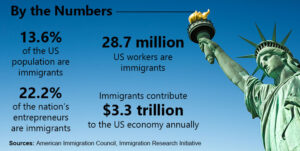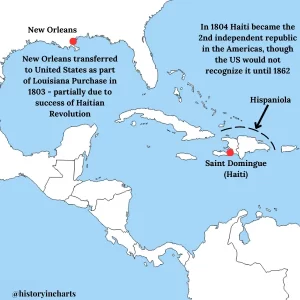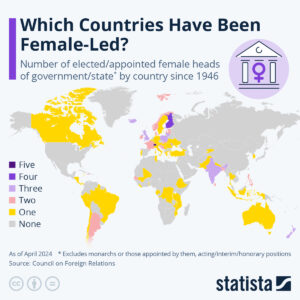|
Getting your Trinity Audio player ready...
|
Reading Time 7 mins
October 15, 2024
‘Haitian dishes represent a unique culinary tradition… Distinguished by its syncretic blend of African, French, Creole, and Native American influences, Haitian cuisine offers a distinctive gastronomic experience.’
David Rudder’s 1988 masterpiece of a song, “Haiti I am Sorry,” from the album Haiti, reflects on the Caribbean nation’s accomplishment and the irony of collective ignorance of its impressive contribution to our history.
But it has now become a political fashion among conservative extremists to insult Haitians. It seems like a weird kind of political sport. First, we had the Trump and JD Vance attack on legal Haitians residing in the community of Springfield, Ohio, and more recently, the remarks of Louisiana Rep. Clay Higgins, who took it up a notch further. It should not be surprising that attempts to exact apologies have been met with more insults.
Unlike David Rudder’s appeal to the conscience of those of us who share the tradition of resistance that Haiti inspired, there are those whose intent is to spread misinformation and hate willfully. Such people would never offer an Apology. However, this lack of civility and good sense prompted many rebukes, including that of The Congressional Black Caucus, which introduced a resolution to censure Higgins.
While Higgins reluctantly reconsidered his baseless views and uttered “Haiti, I am Sorry,” no force could have made Donald Trump and his Vice-Presidential candidate, J.D. Vance, to do so. For them, hate is capital! Like Trump’s disparaging remarks about Mexicans in his 2015 bid and his infamous gibe about A-hole countries, his team has declined to retract such statements. Instead, he pressed even more, pledging to initiate mass deportations, starting in Springfield, by sending Haitians “back to Venezuela” – a statement indicating ignorance of basic geography while employing the typically divisive white supremacist rhetoric characteristic of his and other xenophobic campaigns of the mid-twentieth century that have led to genocide and other war crimes.
Such anti-Haitian tropes can be triggering to the community as it can usher in memories of the October 2, 1937, jingoistic-inspired Parsley Massacre directed by dictator Rafael Leonidas Trujillo in which upwards of 35,000 Haitians and people of Haitian descent were massacred in the Dominican Republic. Also triggering is the false association of the Haitian community in the US with the spreading of AIDS and, later, COVID-19 epidemics. The fact that such castigation, with its attendant psychic pain triggered to a black community, can go virtually without a “Haiti, I am Sorry” speaks to space relegated to black communities in the US compared to other influential groups.
As if the insults to Haitians were not enough, it was another Caribbean people’s turn to be triggered as Puerto Ricans heard their proud country described by not-so-funny MAGA comedian Tony Hinchliffe as a “floating island of garbage” at a Nazi-style rally late October in NYC’s Madison Square Garden. This was heaped upon previous abuse when Trump visited the island in 2017 after Hurricane Maria, insulting Puerto Ricans by throwing rolls of paper towels out to the crowd.
The fact that such debasing and ignorant rhetoric does not appeal to some sections of U.S. society underscores the need for more engaging civic education and a deeper appreciation of American history and its immigrant contributions. Very little is made of Puerto Rican and other Caribbean history, and the great contributions of Haitians and other immigrants in US Social Studies text, including US History and Global History curricula. These omissions are expected to be exasperated if reforms such as what has already happened in Florida become the national norm. For example, some textbooks have already excised passages about Black Lives Matter and the murder of George Floyd.
 Far from being uncivilized or ‘a** hole’ countries, Haitian, Mexican, and other immigrants (especially those from the Americas) have made invaluable contributions to U.S. history. U.S. society should appreciate Haitians, Mexicans, and other immigrant groups for their contributions to the American mosaic.
Far from being uncivilized or ‘a** hole’ countries, Haitian, Mexican, and other immigrants (especially those from the Americas) have made invaluable contributions to U.S. history. U.S. society should appreciate Haitians, Mexicans, and other immigrant groups for their contributions to the American mosaic.
Rather than the unfortunate focus on Haitians as uncivilized interlopers, it may be worthwhile reminding ourselves of the indelible marks made by Haitians throughout American history. We can begin with the Haitian contribution to the U.S. battle of independence, particularly in the Savanna theater. The U.S. may not have gained independence without the Haitian contribution. We can follow up with the often understated fact that Jean Baptiste Point du Sable, the Haitian trader, trapper, and pioneer who was an early settler of what became Chicago, Illinois, is recognized historically as that city’s founder.
Besides, Haiti is the only nation born out of a slave revolt and the first to constitutionally bar racial discrimination. The Caribbean nation managed to maintain political independence despite the pervasive colonialism of the 19th century. Haiti is credited with contributing materially to the 19th-century Latin American independence movement.
 Perhaps Haiti’s most significant contribution to U.S. history was its defeat of Napoleon in Haiti, which thwarted France’s grand design of an American empire. The defeat left France in debt and forced them to sell millions of acres of land to U.S. settlers. Although Springfield and Ohio were not part of the prized Louisiana Purchase (which added all or parts of 15 states and nearly doubled the country’s nominal size), Ohio became part of the Northwest Territory, established after the purchase.
Perhaps Haiti’s most significant contribution to U.S. history was its defeat of Napoleon in Haiti, which thwarted France’s grand design of an American empire. The defeat left France in debt and forced them to sell millions of acres of land to U.S. settlers. Although Springfield and Ohio were not part of the prized Louisiana Purchase (which added all or parts of 15 states and nearly doubled the country’s nominal size), Ohio became part of the Northwest Territory, established after the purchase.
In addition to changing terms in history, Haitian immigrants have positively contributed to the American social fabric as entrepreneurs, journalists, soldiers, educators, medical professionals, chefs, transportation workers, etc.
Regardless of the reasons why the MAGA and other chauvinistic forces feel so free to insult Haitian and Caribbean immigrants, misinformation, miseducation, or hatred is its fuel. Nonetheless, as a significant component of the Caribbean vote, Haitians are shaping to play a pivotal role in the 2024 U.S. elections. Many Haitians and other Caribbean Americans reside in critical states, such as Florida (a swing state), New York, and New Jersey. Their votes can potentially sway the outcome of local, state, and federal elections. It may be poetic justice that the emergence of a candidate of Caribbean background and the racist attacks on the community are serving as push and pull factors of political activism, voter registration, and voter mobilization in this election cycle.
One of the most educated Caribbean voting blocks, Haitian Americans have historically voted in high numbers, and their votes have been crucial in deciding local and national elections. During the 2020 U.S. presidential elections, some sections of the Republican Party courted the Haitian votes because of some Haitian disaffection with the Democratic Party (particularly the Clintons) for perceived interference in Haitian domestic affairs and the corruption this has engendered. Nonetheless, it is not clear whether the 2020 Republican efforts bore significant returns since both U.S. parties have historically neglected Haiti and meddled in Haitian politics. One also wonders whether this latest series of attacks is a recognition of the incorruptibility of the Haitian vote.
Caribbean Americans are a vital voting bloc. Compared to other immigrant groups in the United States, Haitian Americans are more likely to be naturalized citizens, making them a key constituency in any election. Apart from missing the politically strategic value of the Haitian presence in the United States, misinformation promoted by right-wing populists masks the vital presence of the Haitian community in various aspects of American life.
The Haitian presence adds value to the American experience. Far from uncivilized pet-eaters, Haitian dishes represent a distinct culinary tradition that has gained global recognition for its unique flavor profiles. Distinguished by its syncretic blend of African, French, Creole, and Native American influences, Haitian cuisine offers a distinctive gastronomic experience. Hot dogs are not part of this tradition, but catfish, such as “Pwason Gwo Sel,” can be an offering.
The surge in misinformation linked to false claims about Haitian immigrants emanating from right-wing websites and amplified by the Trump campaign has sparked a wave of hate crimes, bomb threats, and neo-Nazi marches in the city, jeopardizing its social cohesion. In response to 33 reported bomb threats, Ohio Governor Mike DeWine deployed state troopers to Springfield to ensure public safety.
Many immigrants coming to the U.S. over recent decades can be considered economic migrants pushed out of their countries by political crises engendered by U.S. foreign policy prescriptions and actual aggression. Often, the choice to make the arduous journey to the U.S. flows from hegemonistic policies and other political factors, such as U.S./French/Canadian orchestrated regime change in Haiti, US-led regime change in Honduras, etc., and continuing sanctions on Cuba and Venezuela.
 Yet, the U.S. can learn many lessons from developing countries. While many black and brown countries are now used to women as heads of state – for example, Mexico, India, Sri Lanka, Pakistan, Haiti, Barbados, Guyana, Dominica, and Trinidad – in its 248 years since independence and 45 presidents, the U.S. is yet to have a head of state to represent its women majority. Women are still to shatter the stained gender ceiling as there is no pay equity, and the U.S. Supreme Court recently repealed Roe v. Wade, giving the state almost total control over a woman’s body.
Yet, the U.S. can learn many lessons from developing countries. While many black and brown countries are now used to women as heads of state – for example, Mexico, India, Sri Lanka, Pakistan, Haiti, Barbados, Guyana, Dominica, and Trinidad – in its 248 years since independence and 45 presidents, the U.S. is yet to have a head of state to represent its women majority. Women are still to shatter the stained gender ceiling as there is no pay equity, and the U.S. Supreme Court recently repealed Roe v. Wade, giving the state almost total control over a woman’s body.
There is a lot at stake in the 2024 elections, particularly pertinent to Caribbean Americans and immigrants, documented and undocumented. For example, Project 2025 is a central ideological blueprint of the would-be Trump Presidency (2025). Backed by the Heritage Foundation and heralded by V.P. JD Vance, the voluminous document aims to consolidate power in the presidency, potentially leading to authoritarianism and censorship of multicultural history, which, among other travesties, would deny Americans the positive roles of Mexicans, Haitians, and Caribbean people in U.S. history.
As the 2024 presidential election approaches, the Caribbean community in the United States has a unique opportunity to significantly impact these elections. Its millions of first—and second-generation Haitian immigrants, the third largest Caribbean group in the US, for example, have a strategic presence in Florida and New York and significant numbers in key states and districts.
In light of recent xenophobic insults against Haitian American immigrants, absurd allegations and insults to the Caribbean community, and the danger of reversal of critical civil rights gains, many people of conscience believe it’s crucial to defeat Trump in the 2024 Presidential elections. Haitian and Caribbean votes will be crucial in shaping the outcome on November 5th and in future contests. As these communities grow and become more engaged in the political process, their voices increasingly demand attention from policymakers and candidates alike.
Haiti, we are genuinely sorry for those who underestimate you!
